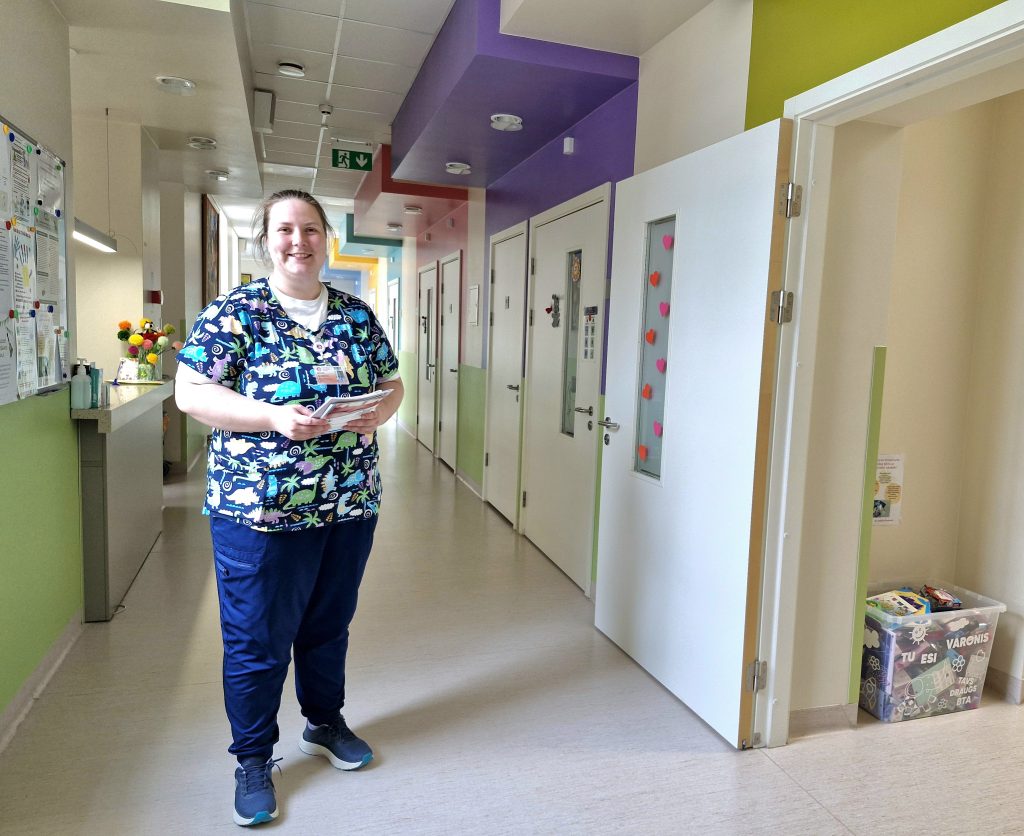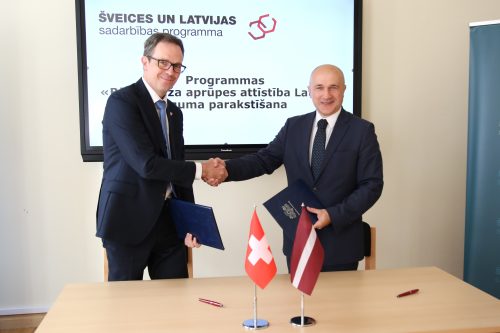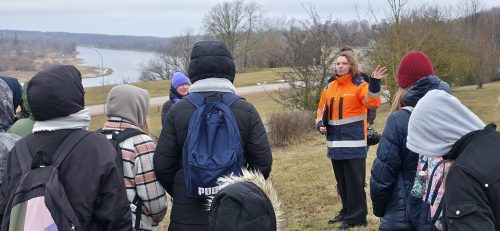Children’s Hospital Welcomes Latvia’s First Paediatric Oncology Nurse Educator
Thanks to the opportunities provided by the Swiss–Latvian Cooperation Programme “Advancement of Paediatric Oncology Care in Latvia”, a new role has been introduced at the Children’s Clinical University Hospital (CCUH): a nurse educator in paediatric oncology. Madara Blumberga has become the first nurse in Latvia to hold this role, working within the hospital’s Haemato-oncology Department.
Today, 23 May, the Scandinavian-Baltic Paediatric Oncology Conference opens in Riga, with Madara Blumberga as one of its organisers. Her insights into the importance of patient and family education in achieving better treatment outcomes are based on both practical experience and evidence from research.
“In many countries, including Latvia, specialist nurses focused on patient education are already established in areas such as diabetes care, gastrostomy care, and adult oncology. There’s no doubt that patients facing cancer need access to specialised information and support—and when the patient is a child, the whole family needs guidance. For ten years, while working as a nurse in the Haemato-oncology Department, I’ve tried to provide this education alongside my clinical duties. But true education must be timely and targeted—explaining, showing, and teaching what each child and their family needs at the right moment.
Before this new role existed, due to our busy schedules, my colleagues and I often had to postpone these important conversations. By the time we had time in the evening, the child might already be asleep. Thanks to the Swiss-funded programme, I can now dedicate my full working time to educating patients and their families, as well as preparing educational materials,” explains Blumberga.
Earlier in May, she attended the SIOP Europe Conference, where paediatric oncology professionals from across Europe shared their experience. In many countries, nurses in paediatric oncology have divided roles—some hours are spent on direct patient care, while a significant part of their time is devoted to family and patient education. Due to financial constraints and limited nursing staff in Latvia, such a system is currently not feasible. Therefore, the support from the Swiss–Latvian programme is especially appreciated.
Blumberga’s work began with developing internal guidelines to ensure consistency in how information is shared with patients and families. This helps avoid confusion caused by different staff members providing varying explanations. Educational materials are now being developed for both staff and patients and are available through the hospital’s portal: www.veselapasaule.lv.
A significant part of her role involves motivating children undergoing treatment to stay physically active. There is growing evidence that physical activity improves outcomes during cancer treatment and helps with emotional regulation. The hospital is currently preparing a separate space for physical activity sessions.
There are also situations where a child may no longer need to stay in the hospital but must still receive daily subcutaneous injections. In such cases, Blumberga provides training for parents—or even the child, when appropriate—on how to safely administer the treatment at home. In the future, additional support could be provided via mobile apps and other innovative tools.
Another core part of her role involves one-on-one conversations with patients and their families. “Only by truly listening can we understand what information is missing and what materials still need to be created. It’s just as important to explain medical processes in a simple and understandable way. From the moment a diagnosis is made and treatment begins, every child and family needs to understand what to expect, what safety measures to follow, and what side effects may occur,” says Blumberga.
“Doctors, of course, explain the treatment plan, but many questions arise later, especially during challenging moments. My job is to revisit this information, explain it again in simpler terms, and encourage families to ask any questions they may have. These conversations also help families feel safe expressing their emotions and acknowledging that they don’t have to understand everything. They are the experts on their child, and their role in the treatment process is invaluable.”
At the SIOP Europe Conference, where Blumberga’s participation was supported through the Swiss–Latvian Programme, there was a strong emphasis on family involvement in paediatric oncology care. She adds, “The best outcomes are achieved when medical professionals, patients, and families work as a team.”

Read more



